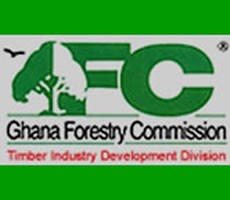
Mr Yaw Kwakye, Manager of Climate Change Unit of the Forestry Department, has expressed concern about the loss of forest cover and forest degradation in Ghana, saying it was leading to Green House Gas emissions and global warming.
He said deforestation was on the increase in Ghana with an alarming rate of 1.9% per annum, one of the highest rates in Africa.
This is as a result of unsustainable agriculture, illegal logging and illegal chainsaw operations, high demand for fuel wood and charcoal, population and development pressures, mining and wildfires.
Mr Kwakye was speaking at a workshop organized by the Forestry Commission Ladies on REDD+ and safeguards on the theme: “Ensuring a Gender Responsive REDD+ Process.”
REDD+ is the acronym for Reducing Emission from Deforestation and forest Degradation and enhancement of carbon stocks.
It is an impact-easing (mitigation) mechanism under the climate change portfolio that encourages developing countries in particular to plant trees to trap the carbons from the atmosphere and get compensated by developed countries for the carbon stocks.
Mr. Kwakye said a reduction in the emission from deforestation and forest degradation would be accompanied with benefits such as the preservation of natural resources, sustainable forest management and forest stock management.
He said the foundation of Ghana’s Reducing Emission from Deforestation and Forest Degradation (REDD+) programs should be based on sound governance principles and also the creation of an enabling environment to stimulate community and private sector participation.
Mrs Roselyn F. Adjei-Zuta mentioned that gender mainstreaming would enhance women’s participation and contribution to the forestry sector which has been ignored over years.
She said it would also ensure that negative impacts on women and vulnerable groups were minimized during the REDD+ process.
According to her, the REDD + would help provide an opportunity for both men and women to benefit equitably by reducing intimidation and fear on the part of some women during decision making and bring their knowledge and skills to bear.
She stated further that a gender responsive REDD+ process will provide improved forest governance and restrict access to forest resources to ensure its sustainability as well.